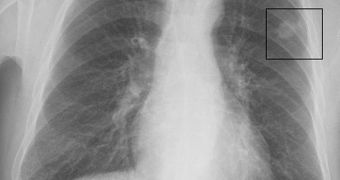Experts with the US National Cancer Institute (NCI) announce the development of an advanced phenotypic screening platform, which is capable of identifying drugs that may potentially destroy cancer. The tool makes it easier to search for these chemicals.
At the same time, it reduces the time required to go through all potential drug combinations that experts have at their disposal. There are endless numbers of combinations and variations that need to be studied, as well as entirely-new chemicals that have yet to be discovered.
What oncologists have to do is go through each and every one of these chemicals, and find out which of them holds the most promise for treating which type of cancer. Needless to say, this is a very lengthy process that takes up a lot of time and resources.
And this is where the new tool comes in. The screening platform is capable of going through many drug combinations at great speed, and highlight those that hold some degree of promise. Experts then focus on these chemicals, while leaving the insignificant ones out of the picture.
“This platform allows us to predict what’s going to happen in pre-clinical models. This not only shortens the amount of time that you would need to do screenings and drug discovery but also enhances dramatically the success you’re going to have in the next phases,” Enrique Zudaire, PhD, explained.
The expert made the announcement at the NCI-EORTC International Conference: Molecular Targets and Cancer Therapeutics, which is held between November 12-16. The meeting is organized by the American Association for Cancer Research (AACR).
Zudaire holds an appointment as a staff scientist with the NCI Radiation Oncology Branch, and was directly involved in developing the phenotypic, high-content, cell-specific fluorescence platform.
“If you do a screening for activity of a particular enzyme, that’s all you’re going to get: a drug that targets that specific enzyme activity. That tells you little about how the enzyme works in a complex organization,” the expert told attendants.
“If we improve the initial phases of drug discovery, we can decide where to invest time and money on drugs that are a lot more likely to work. This study is proof of principle that the platform works,” Zudaire explains.
“From here, we can design assays that are more complex and better able to describe what the in-vivo situation will be,” he concluded. The new study was financed by the NCI and the US National Institutes of Health (NIH).

 14 DAY TRIAL //
14 DAY TRIAL //